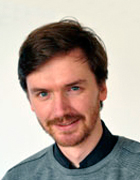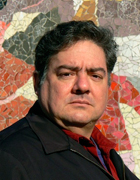Tags
Since our announcement of the Future of Money project, we’ve gotten a lot of great suggestions and enthusiasm from the community, and have already raised over $1,500 in donations! Thank you for your support! Though we’re still in the process of scheduling interviews for the video, we wanted to share the list of who we’ve confirmed so far.
Stay tuned for more updates and interviewees!
 Devin Balkind is the founder of BEEx, a social fundraising platform, and The Sarapis Foundation, a nonprofit organization that supports open source projects that improve people’s capacity to create abundance for themselves and their communities.
Devin Balkind is the founder of BEEx, a social fundraising platform, and The Sarapis Foundation, a nonprofit organization that supports open source projects that improve people’s capacity to create abundance for themselves and their communities.
 Michel Bauwens is a theorist, researcher, and founder of the Foundation for P2P Alternatives, an organization that studies the impact of peer to peer technology and thought on society.
Michel Bauwens is a theorist, researcher, and founder of the Foundation for P2P Alternatives, an organization that studies the impact of peer to peer technology and thought on society.
 Fernanda Ibarra is an advocate for the creation of the new monetary systems, currently involved in the Metacurrency Project.
Fernanda Ibarra is an advocate for the creation of the new monetary systems, currently involved in the Metacurrency Project.
 Guillaume Lebleu is a software designer and future of money blogger.
Guillaume Lebleu is a software designer and future of money blogger.
 Jerry Michalski is the founder of REX – the Relationship Economy eXpedition, a collaborative inquiry into the next economy and where commerce and society may be headed.
Jerry Michalski is the founder of REX – the Relationship Economy eXpedition, a collaborative inquiry into the next economy and where commerce and society may be headed.
 Ashni Mohnot is the founder of Enzi, a social investing platform that enables ordinary people to become angel investors in the education of talented students, in exchange for a share in their future income.
Ashni Mohnot is the founder of Enzi, a social investing platform that enables ordinary people to become angel investors in the education of talented students, in exchange for a share in their future income.
 Dan Robles is the Director of The Ingenesist Project, a private think tank in Seattle that predicts and specifies elements of the next economic paradigm as built on a platform of social media.
Dan Robles is the Director of The Ingenesist Project, a private think tank in Seattle that predicts and specifies elements of the next economic paradigm as built on a platform of social media.
 Alan Rosenblith is the Director of The Money Fix, a feature-length documentary exploring society’s relationship with money.
Alan Rosenblith is the Director of The Money Fix, a feature-length documentary exploring society’s relationship with money.
 Douglas Rushkoff is an author, teacher, and documentarian (Program Or Be Programmed, Life Inc., Digital Nation) who focuses on the ways people, cultures, and institutions create, share, and influence each other’s values.
Douglas Rushkoff is an author, teacher, and documentarian (Program Or Be Programmed, Life Inc., Digital Nation) who focuses on the ways people, cultures, and institutions create, share, and influence each other’s values.
 Kim Scheinberg is a writer, editor, and co-creator of the Presumed Abundance fund, a pay it forward model for angel investing.
Kim Scheinberg is a writer, editor, and co-creator of the Presumed Abundance fund, a pay it forward model for angel investing.
 Hans Schoenberg is the co-founder of GiftFlow, a platform that connects community organizations, businesses, governments and neighbors in order to share resources and meet each others’ needs.
Hans Schoenberg is the co-founder of GiftFlow, a platform that connects community organizations, businesses, governments and neighbors in order to share resources and meet each others’ needs.
To visit the Future of Money project page, click here.
awesome!!! Will the interviews be available to the public??
If we reach our fund raising goal; check this post out for details and help spread the word 🙂
http://www.emergence.cc/2010/09/its-all-about-goals/
Contribution in kind:
How money in an economy relates to complex networks, efficiency and resiliency, diversity and interconnectivity.
Bernard A. Lietaer at TEDxBerlin 2009-11-30
things are rolling, awesome.
Vanessa, Gabriel,
I highly recommend you interview Mira Luna. She’s a community currency educator, activist, and organizer. She’s the most knowledgeable and connected person I know in this space next to Bernard, and also a Shareable.net writer. She has a global perspective on currencies and can also recommend others worldwide to speak to.
Her blog:
http://trustcurrency.blogspot.com/
Neal
There is a need for powerful new thinking about the nature, and purpose of capital. My evolving project of Transfinancial Economics maybe of interest.
http://www.p2pfoundation.net/Transfinancial_Economics
i’ve come across your work. would like to chat further. are you on twitter yet?
Yes, I may contact you on Twitter…I think the following would also be of interest….It comes from a “conversation” on the ICEME Facebook website…
Robert Searle
I am the originator of Transfinancial Economics. See link
http://www.p2pfoundation.net/Transfinancial_Economics
I was amazed, and impressed that TFE (still in the process of development)was apparently part of the ICEME conference. However, I was never told about it, and only discovered about it by chance on the internet…But, I thank the organizers for including this subject at the Conference. If I had been present I am sure I could have given a better, and thorough insight into TFE rather than the American lady……
http://www.iiis2010.org/iceme/invitedsession/InvitedSessionPre.asp?vc=32
I also append here so to speak a brief introduction to the subject below which maybe of interest..
i) TFE is a transitional system towards the ultimate aim of a moneyless world.
ii) Phase I TFE could be undertaken very quickly by special banks concerned with sustainability, and green products/services. These banks are called Facilitator Banks, or FBs (term not yet used in the entry on this subject at the p2pfoundation).With so-called grant interest as an incentive they would be able to electronically create new non-repayable money (like governments but be tracked, and monitored by the Central Bank, or some other body to prevent fraud) for some project which could in part also include investors using earned money ofcourse. It is similiar to the concept of Advanced Market Commitment, or AMC. FBs would have powers to create subsidies, and other ways to ease finance in some project (especially those with little, or no obvious commercial incentive but have high humanitarian, environmental, and sustainable value so to speak). Objective checks on the capacity of the relevant suppliers of products, and services would be undertaken to ensure that there is no disallocation of resources which could lead to serious rises in the free market price as well as shortages. If necessary investment by FBs could be made to increase capacity where, and when necessary.
iii) Phase II TFE involves the gradual introduction of new, or upgraded computers, and new computer programming into the banking system. FBs (and the normal banking sector) would start to in part to monitor the volume, and sales of products,and services directly from the real economy. If there is any serious problems of inflation these could be subject to an instant electronic price controls. Moreover, if this leads to a serious loss in profit to a business this would be instantly compensated by new non-repayable money created electronically to the relevant bank account(s). However, every attempt would be made to avoid serious price distortions.
Taxes, and interest would also be gradually phased out altogether. Interest would be paid for by an independent public body.
iv) Phase III TFE is the full global introduction of electronic monitoring of goods, and services. The key aim of this is not only to keep inflation in check if necessary but also to have highly accurate data of how much in the way of real resources are being used up on our “small” planet. Such knowledge will become increasingly important as this will give growing green businesses (subsidised mainly by FBs rather than by governments) to make the best use of limited resources. Furthermore, we would unlike now have a far more adbvanced understanding of the mechanics of the economy itself.At this stage, taxes, and interest would no longer exist.
v) During Phase II, and Phase III TFE there would be a huge increase in automation. This would ultimately end the need for wage slavery. With the help of carefully targeted subsidies virtually all businesses would have become more responsible as far as the environment, and sustainability is concerned. At the same time, there would be unemployment on a huge scale. But people would be able to indulge in “leisure-like” pursuits, and receive a form of financial benefit created by new non-repayable money. NGOs would become far more powerful, and influential in society, and would spearhead changes on a mass scale to create a new, saner world no longer based on greed, and money. They would be able to challenge centralized power structures as never before, and will find getting grants alot easier to come by. The upshot of all this is a moneyless world but one in which open democracy, and respect for universal human rights acts as the basis of an evolved technocratic world.
about 3 months ago
Ieva Zeltmate
this sometimes happens 🙂
on Tuesday · Report
Robert Searle
Yes…as you put it “….this sometimes happens…!” But never mind!
on Wednesday · Delete Post
Ieva Zeltmate
jaa not always positive examples but every coin – as you mentioned previously – has 2 sides 🙂 You already proved that you are creative and can realize ideas ….so…
if it is used somewhere it means it is actual and it means you can make some good publications to make it more actual and update it …. and since time goes and many things changes, everything becomes automated and improved – > it is a new challenge for creativity 🙂 viewing existing problem from another aspects can give and require new knowledge, methods & tools 🙂 Good luck! 🙂
20 hours ago · Report
Robert Searle
Thank you for your comment.
Yes, I am sure something like TFE will become a reality. It is very important subject because whether you like it, or not money is the basis of the present system. Until that is somehow sorted we are lumbered with a debt based system which slows down the rate of human progress in so many things.
More importantly, the first stage of TFE could be easily developed with the right political will. Fortunately, or unfortunately banks would not necessarily loose out as explained in the original post. But special facilitator banks could create new (monitored) non-repayable capital (ie. so-called facilitation finance) in full or in part electronically for many social, economic, and climate change projects (all of which could be not be fully, or partly funded by venture capitalists). With the correct capacity checks of relevant suppliers of a project, or projects serious inflation will not occur. Ofcourse, interest free loans could be created too.
Thank you for your kind words…and Good Luck with your work…
Pingback: Crowdfunding 101: 5 Questions to Consider « emergent by design
Pingback: Crowdfunding 101: 5 Questions to Consider
great blog post, i obviously love this amazing site, continue on it.